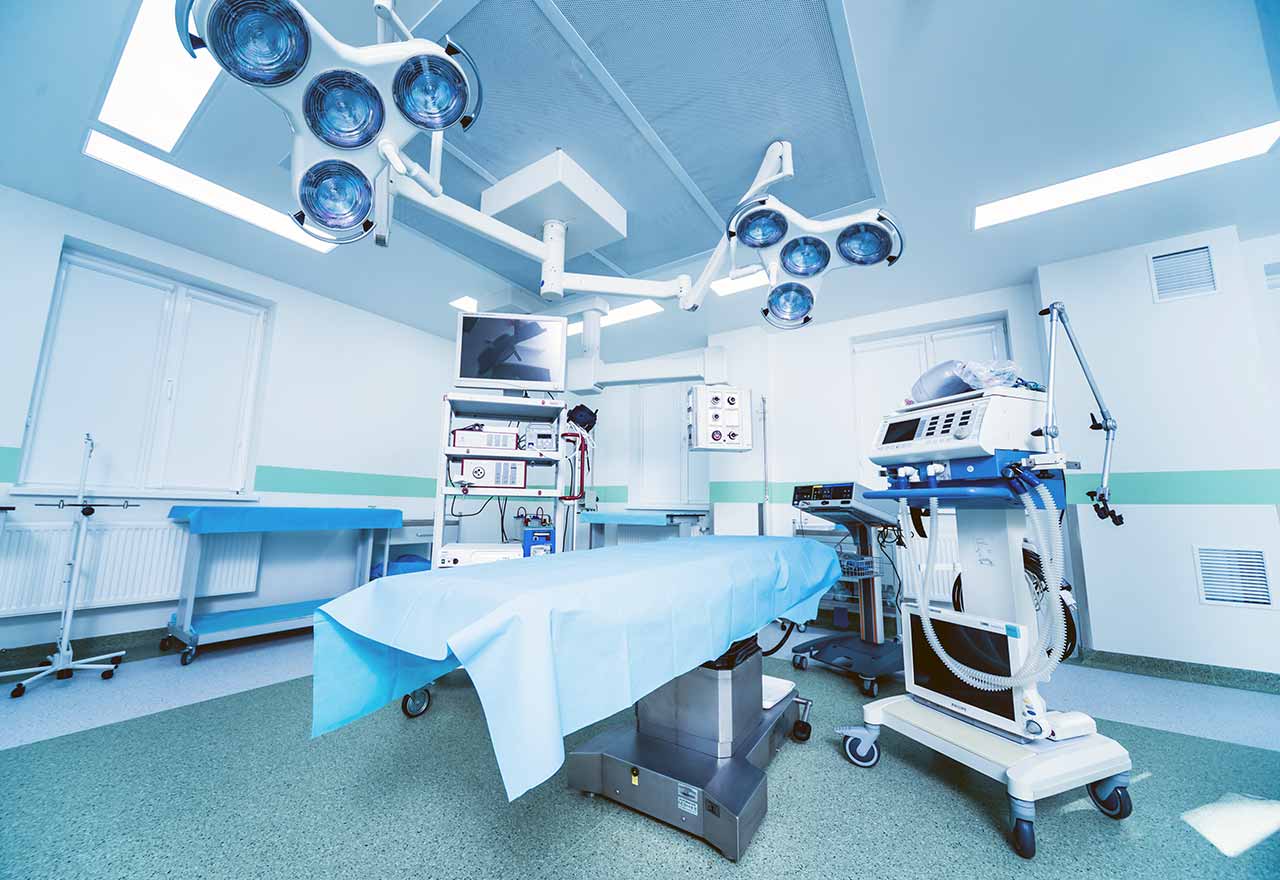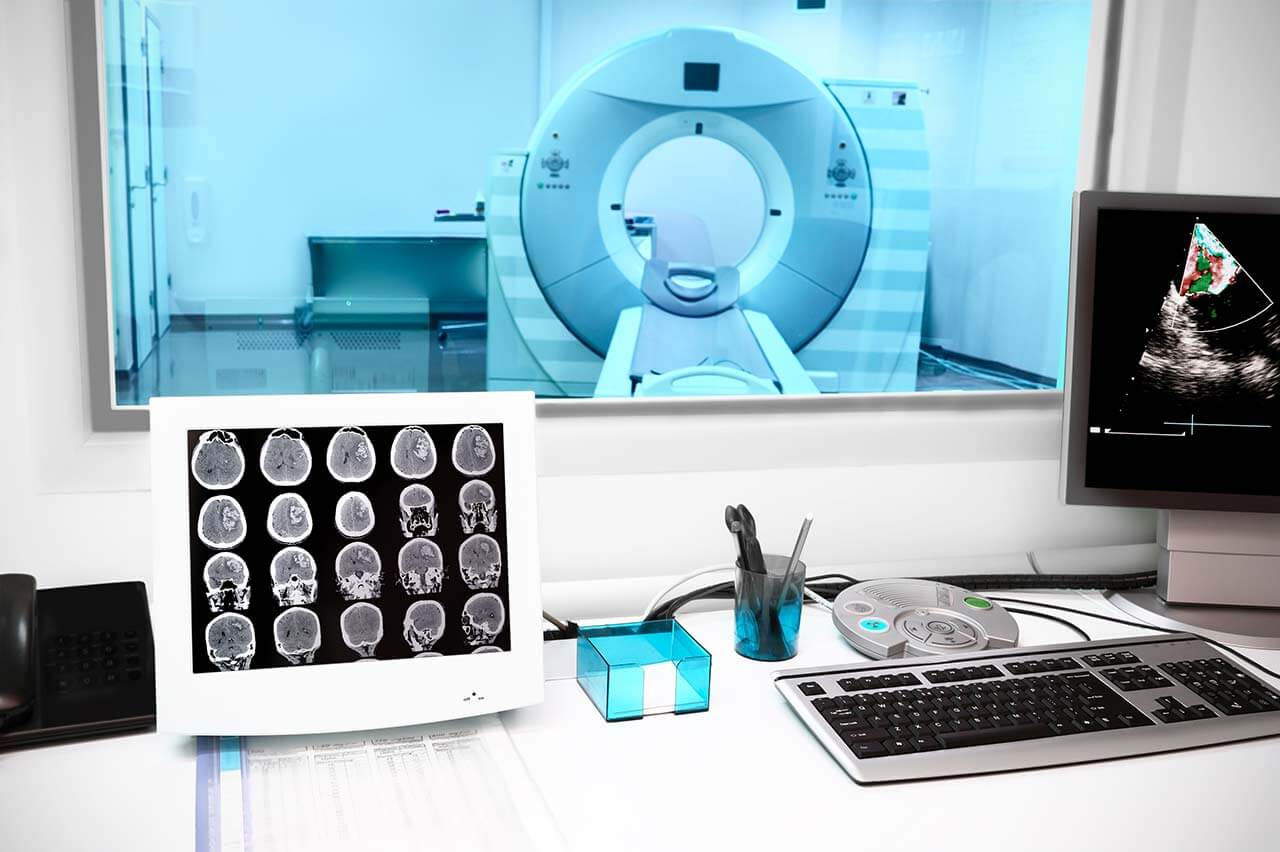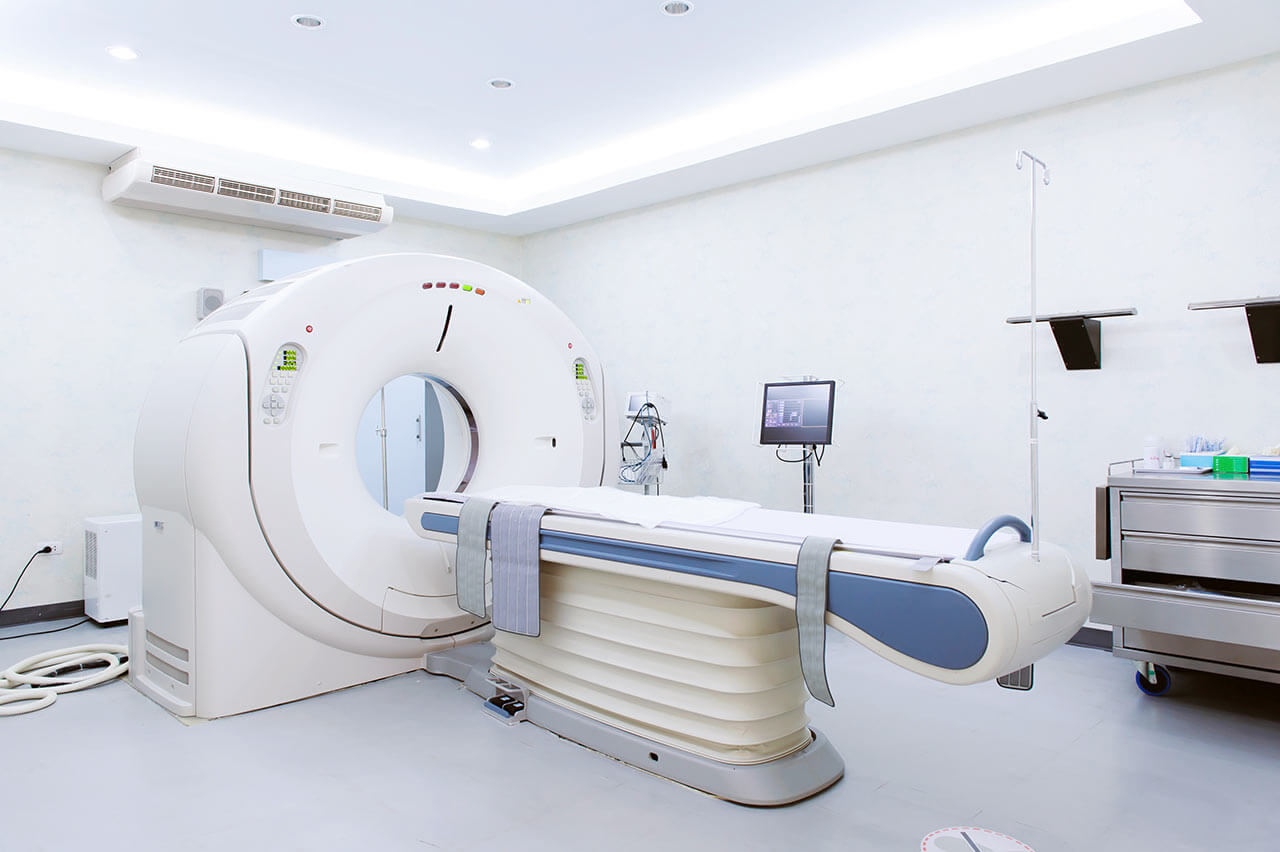
The program includes:
- Initial presentation in the clinic
- clinical history taking
- review of medical records
- physical examination
- laboratory tests:
- complete blood count
- general urine analysis
- biochemical analysis of blood
- inflammation indicators (CRP, ESR)
- indicators blood coagulation
- hormonal examination (estrogen, progesterone,
prolactin, DHEA, FSH, LH
- gynecological examination:
- colposcopy
- vaginal swab
- cervical biopsy
- histological examination
- pelvic ultrasound
- transvaginal ultrasound
- breast ultrasound
- ultrasound examination: pelvis, abdomen, thyroid
- consultation of related specialists
- symptomatic specific treatment
- the cost of essential medicines and materials
- nursing services
- control examinations
- full hospital accommodation
- developing of further guidance
Required documents
- Medical records
Service
You may also book:
 BookingHealth Price from:
BookingHealth Price from:
About the department
The Department of Pediatric and Adolescent Medicine at the University Hospital Hamburg-Eppendorf provides a full range of services for the diagnosis and treatment of various diseases in newborns, infants, young children, and adolescents. A special feature of the department is its unique competence in the treatment of rare and complex pathologies in young patients. The medical facility provides medical care for children with gastrointestinal diseases, liver pathologies, immunodeficiency disorders, kidney and lung diseases, rheumatic diseases, metabolic disorders, and pathologies of the central and peripheral nervous system. A highly professional medical team of 75 doctors works with young patients. The specialists have many effective therapeutic methods at their disposal. Each child receives a personalized treatment regimen, which is developed taking into account the diagnosis, stage of the pathological process, general health condition, and age. In total, more than 23,000 young patients are treated in the department each year, about 17,700 of them on an outpatient basis. The doctors get along well with the children and support the young patients and their parents in every possible way on their way to recovery. The department has a pleasant and friendly atmosphere that ensures maximum comfort for the child. The Head Physician of the department is Prof. Dr. med. Ania Muntau.
The department regularly consults young patients with diseases of the digestive system, liver conditions, and nutritional disorders. Diagnosis includes a clinical examination, laboratory tests, and ultrasound scans. When clinically indicated, the doctors of the department perform endoscopic examinations. Highly qualified gastroenterologists with extensive clinical experience take care of children's health. They work hand in hand with pediatric surgeons, radiologists, nutritionists, and other specialists to provide comprehensive medical care. In most cases, young patients receive drug treatment. The availability of advanced equipment in the department allows for a wide range of endoscopic therapeutic procedures, including gastroscopy, colonoscopy, polypectomy, balloon enteroscopy, endoscopic mucosal resection, and others. Endoscopy is a second-line treatment used in cases where drug therapy and diet therapy do not work.
Diagnosis and treatment of congenital and acquired diseases of the kidneys and urinary tract complement the therapeutic options of the department. The department's pediatric nephrologists focus on young patients with acute and chronic kidney failure, glomerulopathies, and tubulopathies. If kidney pathology is suspected, the young patient undergoes a comprehensive diagnosis, including laboratory tests and ultrasound scans. A personalized treatment regime is then elaborated based on the use of medications to normalize kidney function. Children with chronic kidney failure often require renal replacement therapy (dialysis): the department has a special dialysis unit for peritoneal dialysis and hemodialysis. In complex cases, nephrologists work with pediatric surgeons and transplant surgeons to evaluate the possibility of kidney transplantation. Young patients with acute kidney failure can be treated with hemofiltration and plasmapheresis.
The department's team of pediatric neurologists treats newborns, young children, and adolescents with diseases of the brain, spinal cord, and peripheral nervous system. Common conditions treated include cerebral palsy, autism, epilepsy, attention deficit hyperactivity disorder, chronic headaches, and traumatic brain injuries. The department is one of the few medical institutions in Germany that has many years of experience in treating children with neuronal ceroid lipofuscinosis and leukodystrophy, which are degenerative diseases of the brain. In addition, the department operates a specialized Center for Neuromuscular Diseases with certification of the German Muscle Society (DGM). The specialists have at their disposal all modern diagnostic methods for assessing the state of the nervous system: video-EEG monitoring, electrophysiological studies, computed tomography, magnetic resonance imaging, and genetic testing, including exome sequencing. Treatment includes modern medications, botulinum toxin injection therapy, diet therapy, and other therapeutic measures. If the child requires surgery, possible options are discussed with neurosurgeons.
The medical services provided by the department are as follows:
- Diagnostics and treatment of diseases of the gastrointestinal tract and liver, including the care of a child before and after a liver transplant
- Diagnostics and treatment of gastritis
- Diagnostics and treatment of gastroenteritis
- Diagnostics and treatment of duodenitis
- Diagnostics and treatment of enterocolitis
- Diagnostics and treatment of chronic constipation
- Diagnostics and treatment of chronic abdominal pain
- Diagnostics and treatment of inflammatory bowel disease
- Diagnostics and treatment of irritable bowel syndrome
- Diagnostics and treatment of celiac disease
- Diagnostics and treatment of pancreatitis
- Diagnostics and treatment of hepatitis
- Diagnostics and treatment of liver cirrhosis
- Diagnostics and treatment of infectious diseases, immunodeficiency disorders
- Diagnostics and treatment of transient hypogammaglobulinemia of infancy
- Diagnostics and treatment of IgG subclass deficiency
- Diagnostics and treatment of selective IgA deficiency
- Diagnosis and treatment of HIV infection
- Diagnostics and treatment of kidney diseases
- Diagnostics and treatment of acute and chronic kidney failure
- Diagnostics and treatment of congenital and acquired glomerulopathies
- Diagnostics and treatment of congenital and acquired tubulopathies
- Diagnostics and treatment of lung and respiratory diseases
- Diagnostics and treatment of pathological lung lesions due to rheumatic, neurological, or metabolic diseases
- Diagnostics and treatment of bronchial asthma
- Diagnostics and treatment of allergic diseases
- Diagnostics and treatment of hay fever
- Diagnostics and treatment of food allergies
- Diagnostics and treatment of insect sting allergies
- Diagnostics and treatment of rheumatic diseases
- Diagnostics and treatment of juvenile idiopathic arthritis
- Diagnostics and treatment of reactive arthritis
- Diagnostics and treatment of vasculitis
- Diagnostics and treatment of collagenosis
- Diagnostics and treatment of hereditary periodic fever syndromes
- Diagnostics and treatment of juvenile sarcoidosis
- Diagnostics and treatment of metabolic disorders
- Diagnostics and treatment of phenylketonuria
- Diagnostics and treatment of amino acid metabolism disorders
- Diagnostics and treatment of urea cycle disorders
- Diagnostics and treatment of mitochondriopathies
- Diagnostics and treatment of peroxisomal disorders
- Diagnostics and treatment of lipid metabolism disorders
- Diagnostics and treatment of neurological disorders
- Diagnostics and treatment of cerebral palsy
- Diagnostics and treatment of autism
- Diagnostics and treatment of epilepsy
- Diagnostics and treatment of chronic headaches
- Diagnostics and treatment of attention deficit hyperactivity disorder
- Diagnostics and treatment of traumatic brain injuries
- Diagnostics and treatment of degenerative diseases of the brain with a special emphasis on neuronal ceroid lipofuscinosis and leukodystrophy
- Diagnostics and treatment of tuberous sclerosis
- Diagnostics and treatment of other diseases in children and adolescents
Curriculum vitae
Higher Education and Professional Career
- Since 2014 Head Physician, Department of Pediatric and Adolescent Medicine, University Hospital Hamburg-Eppendorf.
- 2010 ‐ 2014 Head Physician, Department for Congenital Metabolic Disorders, Dr. von Hauner Children's Hospital, part of the University Hospital of Ludwig Maximilian University of Munich.
- 2007 - 2014 Project Manager within the framework of the initiative program "LMU Excellence Initiative".
- 2006 - 2014 W2 Professorship for Pediatrics.
- 2004 ‐ 2014 Head Physician, Department of Pediatrics, Dr. von Hauner Children's Hospital at the University Hospital of Ludwig Maximilian University of Munich; Project Leader of the Bavarian Genome Research Network.
- 2001 - 2004 Postdoctoral fellowship, Dr. von Hauner Children's Hospital at the University Hospital of Ludwig Maximilian University of Munich.
- 2000 - 2001 Postdoctoral fellowship, Institute of Physiological Chemistry at the Ruhr University Bochum.
- 2000 Board certification in pediatric and adolescent medicine.
- 1997 - 2004 Training in biochemical genetics and molecular biology.
- 1990 - 2000 Training as part of preparation for board certification in pediatric and adolescent medicine.
- 1984 - 1990 Medical studies, Ludwig Maximilian University of Munich.
Awards, Honors, and Honorary Memberships
- Since 2015 Member of the National Academy of Sciences Leopoldina.
- 2012 Therese von Bayern Award.
- 2008 Honorary Mention, Nature Awards for Mentoring and Science.
- 2004 Adelbert Czerny Prize for outstanding research in pediatrics.
- 2001 - 2005 Scholarship from the German Research Foundation (DFG).
Memberships in Professional Societies
- German Society for Pediatric and Adolescent Medicine (DGKJ).
- Society for the Study of Inborn Errors of Metabolism (SSIEM).
- American Society of Human Genetics (ASHG).
- Working Group for Pediatric Metabolic Disorders (APS).
Photo of the doctor: (c) Universitätsklinikum Hamburg-Eppendorf (UKE)
About hospital
According to the Focus magazine, the University Hospital Hamburg-Eppendorf is one of the top ten hospitals in Germany!
Since its foundation in 1889, the hospital has taken a leading position in the European medical arena, which it still holds today. A highly competent medical team of more than 15,300 employees takes care of the health of patients. Approximately 2,900 of them are physicians and researchers, and more than 3,400 work as nurses and therapists. The hospital has 1,738 beds for inpatient treatment, and many diagnostic and therapeutic services are provided on an outpatient basis. A solid foundation for successful clinical practice in the medical complex is formed by a combination of research achievements with state-of-the-art equipment and the highest professionalism of doctors. In addition, the hospital has a modern and extremely comfortable infrastructure. The most important value for every employee of the University Hospital Hamburg-Eppendorf is the health and well-being of every patient.
The medical facility was the first university hospital in Europe to implement an electronic system for storing patient medical reports. As a result, all diagnostic and treatment protocols are stored electronically. In 2011, the hospital was certified as the first fully digital hospital in Europe.
The hospital represents all areas of modern medicine. The doctors of the healthcare facility have a wealth of theoretical knowledge and vast clinical experience, which allows them to easily cope with the treatment of both common and extremely rare, complex clinical cases. About 550,000 patients are treated here each year, over 450,000 of whom receive outpatient medical care.
An important part of the work of the University Hospital Hamburg-Eppendorf is research activities aimed at developing innovative diagnostic and treatment methods. The main areas of research of the hospital include neurobiology, oncology, cardiovascular research, and research on infectious and inflammatory diseases. Special attention is also given to research in molecular imaging and skeletal biology.
The hospital is distinguished by its first-class level of medical care, which is confirmed by numerous quality certificates of European and international standards: DIN EN IS0 9001 certificate, certificates of the German Cancer Society (DKG) in the treatment of breast cancer, colon cancer, gynecological cancer, prostate cancer, and other oncological diseases, certificate of the German Cardiac Society (DGK) in the treatment of acute coronary syndrome, certificate of the German Spine Society (DWG), and others.
Photo: (с) depositphotos
Accommodation in hospital
Patients rooms
The patients of the University Hospital Hamburg-Eppendorf stay in comfortable single and double bright rooms with a modern design. Each patient room has an ensuite bathroom with a shower and a toilet. The standard patient room furnishings include an automatically adjustable bed with an orthopedic mattress, a bedside table, a wardrobe, a table and chairs for receiving visitors, a telephone, a radio, and a TV. Wi-Fi access is available in patient rooms and throughout the hospital.
If desired, patients can stay in single enhanced-comfort rooms. These rooms are more spacious and are equipped with upholstered furniture, a safe, and a mini-fridge.
Meals and Menus
The hospital offers three meals a day: breakfast, lunch, and dinner. Breakfast and dinner are served in the form of buffets, and for lunch you can choose from several set menus – in total, more than 20 dishes are served for lunch, including vegetarian ones.
If, for some reason, you cannot eat all of the foods, you will be offered an individual menu. Please inform the medical staff about your dietary preferences prior to the treatment.
Further details
Standard rooms include:
![]() Toilet
Toilet
![]() Shower
Shower
![]() Wi-Fi
Wi-Fi
![]() TV
TV
Religion
Religious services are available upon request.
Accompanying person
During the inpatient program, an accompanying person may stay with you in a patient room or hotel of your choice.
Hospital accommodation
During the outpatient program, you may stay in a hotel at the hospital.
Hotel
During the outpatient program, you may stay in a hotel of your choice. Managers will help you choose the most suitable options.
The hospital offers a full range of laboratory tests (general, hormonal, tests for infections, antibodies, tumor markers, etc.), genetic tests, various modifications of ultrasound scans, CT scans, MRI and PET / CT, angiography, myelography, biopsy and other examinations. Treatment with medications, endoscopic and robotic operations, stereotaxic interventions is carried out here, modern types of radiation therapy are also used. The hospital offers patients all the necessary therapeutic techniques.
- Coiling and clipping of aneurysms of different localizations
- Transjugular intrahepatic portosystemic shunting in patients with portal hypertension
- Minimally invasive surgeries (da Vinci)
- Removal and reconstruction of mammary glands
- Hyperthermic intraperitoneal chemotherapy (HIPEC)
These are arteriovenous malformations and angiomas, vascular aneurysms, pathologies of the mammary glands, pelvic organ prolapse, urinary incontinence, malignant tumors of various localizations (area of special attention is treatment of intestinal cancer), pathologies of liver and pancreas, cataracts and rare ophthalmic pathologies (aphakia, aniridia ), infertility and other diseases.
- Interventional neuroradiology
- Mammology
- Oncology
- Gastroenterology
- Surgery
Over 2,900 highly qualified physicians and researchers work at the hospital.





